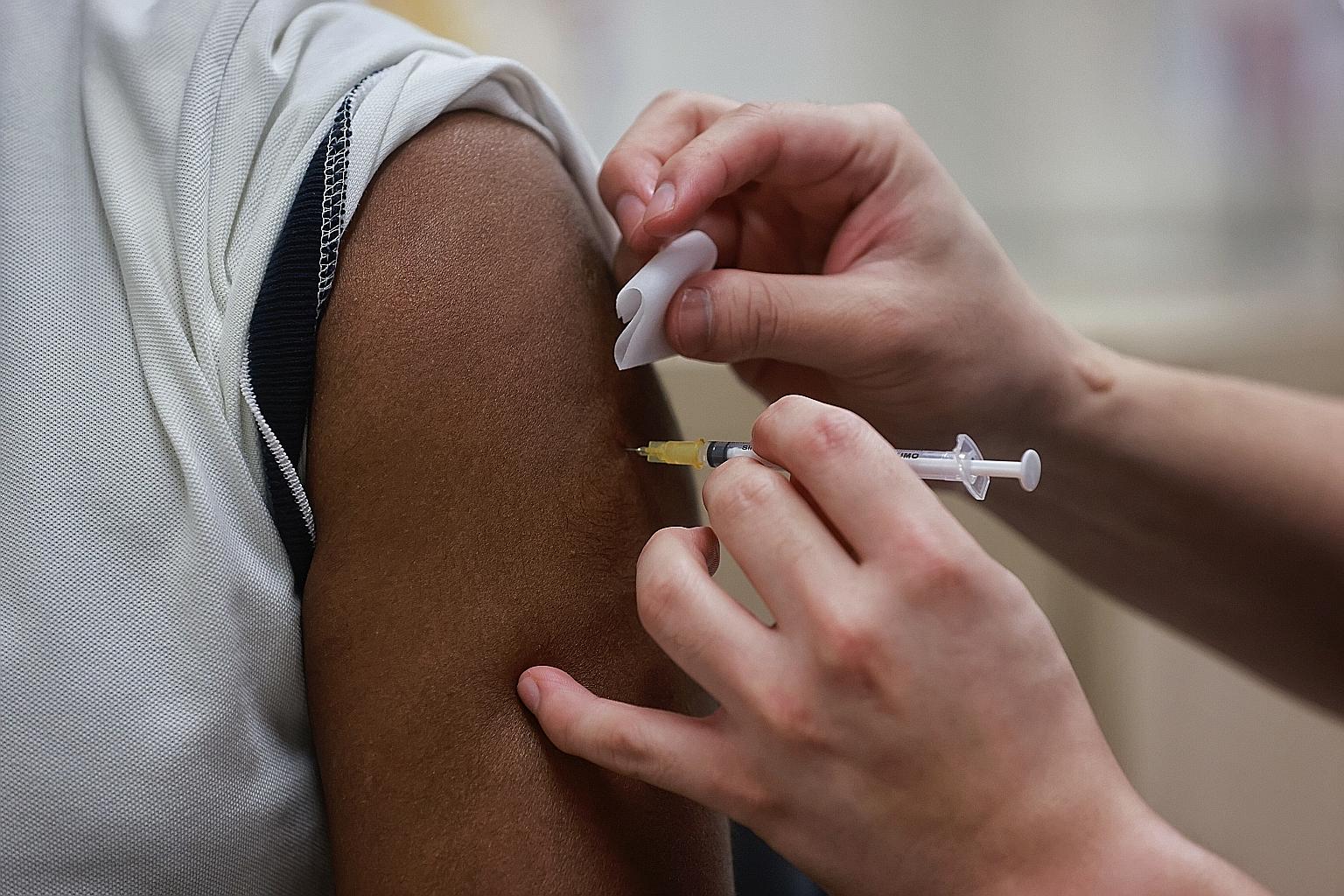Parliament: Covid-19
Safety is top priority in vaccine roll-out
This includes having a proper queueing system and accurate data capture: Gan
Sign up now: Get ST's newsletters delivered to your inbox

A National Centre for Infectious Diseases staff member receiving the Covid-19 vaccination last week. Health Minister Gan Kim Yong detailed in Parliament the rigorous review process that Covid-19 vaccines have to undergo before being approved for use here.
ST FILE PHOTO
Follow topic:
Safety must be ensured for people receiving the Covid-19 vaccine, and that will include having a proper queueing and registration system, and ensuring their data is captured accurately, all of which has a bearing on how quickly vaccinations can be rolled out, Parliament heard yesterday.
"So it is quite a complex situation," said Health Minister Gan Kim Yong in response to Dr Lim Wee Kiak (Sembawang GRC), who had expressed his view that the nationwide vaccination effort should be rolled out more quickly.
In his ministerial statement on Singapore's response to the pandemic, Mr Gan acknowledged that many questions have been raised on vaccine safety and efficacy.
"These concerns are understandable, given the extraordinary speed at which the Covid-19 vaccines have been developed and brought to market," he said.
"Let me assure you that the safety and well-being of Singaporeans is top priority in our vaccination efforts."
In response to Mr Melvin Yong (Radin Mas), who had asked if there is any data to show that existing vaccines are effective against the new, more transmissible strain of the coronavirus from Britain, Mr Gan added that there is currently no evidence that shows they are not.
Vaccine manufacturers Pfizer-BioNTech and Moderna have publicly stated that their vaccines are likely to protect against the new strain, and are undertaking studies to formally confirm this.
The Ministry of Health (MOH) will evaluate the data as it emerges and review Singapore's vaccine strategy and border measures accordingly, Mr Gan said.
"Mutations occur in viruses naturally and different strains can emerge from time to time, especially in a long-drawn pandemic," he said. "Experts have said that it is unlikely that these mutations would impact effectiveness of current vaccines."
The Health Minister also detailed the rigorous review process that Covid-19 vaccines have to undergo before being approved for use here.
First, they are studied by experts from the Health Sciences Authority (HSA) under the Pandemic Special Access Route. The vaccines are held up against strict international standards of quality, safety and efficacy.
These standards are the same as those used for full vaccine evaluations, except that longer-term data from clinical trials will be evaluated only later, as more data becomes available.
As part of its review process, the HSA looks at data from pre-clinical studies in laboratories, clinical trials on human volunteers, manufacturing and quality controls, as well as countries' ongoing experience with the actual use of the vaccine.
The Pfizer-BioNTech vaccine underwent this process before being authorised for use, while the Moderna and Sinovac vaccines are currently being reviewed.
"HSA will allow a Covid-19 vaccine to be used only if it is assessed to be sufficiently efficacious and safe for use, and only if the benefits of the vaccine are assessed to outweigh the risks of any potential adverse effects from the vaccination," Mr Gan said.
Following HSA's approval, the independent expert committee appointed by MOH also reviewed clinical data on the safety and efficacy of the Pfizer-BioNTech vaccine.
"In assessing the suitability of vaccine candidates for specific population groups, the expert committee took into consideration four key criteria - vaccine safety, vaccine efficacy, vaccine tolerability, and data adequacy of clinical trials," Mr Gan added.

